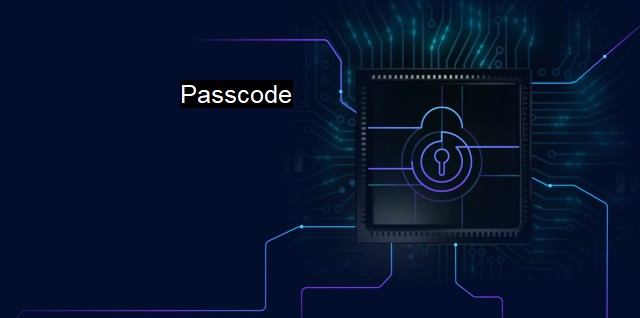What is Passcode?
Unlocking the Importance and Role of Passcode in Cybersecurity and Antivirus: Creating Strong Passwords for Enhanced Data Protection
Passcode, also known as a password, is an essential cybersecurity feature used in most account-based systems to verify the identity of users. Passcodes are created by an individual for safeguarding personal or sensitive data, functioning as a unique identifier that only the owner has access to, assuming no third-party knows it. From banking accounts to social media platforms, the use of valid passcodes promotes the confidentiality, integrity, and availability of digital assets, making it critical in the realm of cybersecurity and antivirus software.In a security context, passcodes are often personalized and are required to be sufficiently complex and unique for better protection. They typically include a mix of numbers, letters, and special characters, which makes them difficult to crack. When these codes are inputted correctly, systems provide access to the required data. Incorrect entry of passcodes, on the other hand, denies access, maintaining the security of the system.
One primary reason passcodes are pivotal in cybersecurity is due to their role in maintaining user privacy. As most of our personal and financial specifics are now stored online, falling prey to a cybercriminal can lead to disastrous results. Cybersecurity systems are to provide a security-rich environment for transactions and data storage, and passcodes represent the first formidable line of defense in this regard.
The significance of passcodes is also demonstrated when analyzing the practices of malicious individuals or entities. Hackers often attempt to break into systems through a process called "brute force," in which they use software to guess passcodes until they find the right one. Owning a robust and unique passcode prevents the success of these attacks and, combined with antivirus software; it can ensure the digital safety of a user.
While passcodes offer an essential protective measure, they are not without their drawbacks. For instance, users may select weak or easily predictable passwords putting their systems at significant risk. individuals often use the same passcode for different accounts, compounding the potential damage if their passcode is ever discovered. This is where antivirus software, complementing the use of strong passcodes plays an integral role encompassing real-time protection, data loss prevention, and intrusion detection systems.
Passcodes can fall into wrong hands through phishing – a fraudulent scheme to trick people into providing their sensitive information, such as passwords or credit card numbers, by pretending to be a trusted party. For combating such threats, there are secure practices like two-factor authentication (2FA) or multi-factor authentication (MFA). These security measures add an extra layer of protection by requiring users to prove their identity by confirming a second factor such as fingerprints, facial scans, or OTPs (One-time passwords) sent on their smartphones.
Passcodes sit at the heart of cybersecurity efforts to protect digital assets. From simple alphabet-numeric combinations to complex biometric-incorporated measures, they relentlessly aid in the fight against cyber threats and uphold data integrity. While they have their limitations, their vital function of safeguarding information can't be undermined. Such a critical measure, when intelligently combined with cybersecurity tools like antivirus software and practices like MFA, builds a robust shield that offers users peace of mind while navigating the digital sphere. Comprehending the importance of passcodes and knowing how to optimize their use contributes greatly to individual and organized cybersecurity. It enables users to confidently use and store data digitally, benefitting them by harnessing the potential of the internet and new age technology to the fullest.

Passcode FAQs
What is a passcode?
A passcode is a security feature that is used to authenticate a user's identity before granting access to a device, application, or service. It is a sequence of characters that a user must enter to gain access.How secure is a passcode?
The security of a passcode depends on the complexity of the characters used in the passcode. A strong passcode that includes a combination of letters, numbers, and special characters is more secure than a simple passcode. It is also important to avoid using common words, phrases, or personal information in a passcode.Can passcodes be hacked?
Passcodes can be hacked if they are not strong enough. Hackers use various techniques like brute force attacks or dictionary attacks to guess the passcode. It is important to use long and complex passcodes to make them more difficult to guess.Why do I need a passcode on my device?
A passcode is necessary to protect your device from unauthorized access. If someone gains access to your device, they can steal or delete your sensitive data, install malware or spyware, or misuse your device in other ways. A passcode adds an extra layer of security to prevent such incidents from happening.Related Topics
Two-factor authentication password strength biometric authentication multi-factor authentication password manager
| | A | | | B | | | C | | | D | | | E | | | F | | | G | | | H | | | I | | | J | | | K | | | L | | | M | |
| | N | | | O | | | P | | | Q | | | R | | | S | | | T | | | U | | | V | | | W | | | X | | | Y | | | Z | |
| | 1 | | | 2 | | | 3 | | | 4 | | | 7 | | | 8 | | |||||||